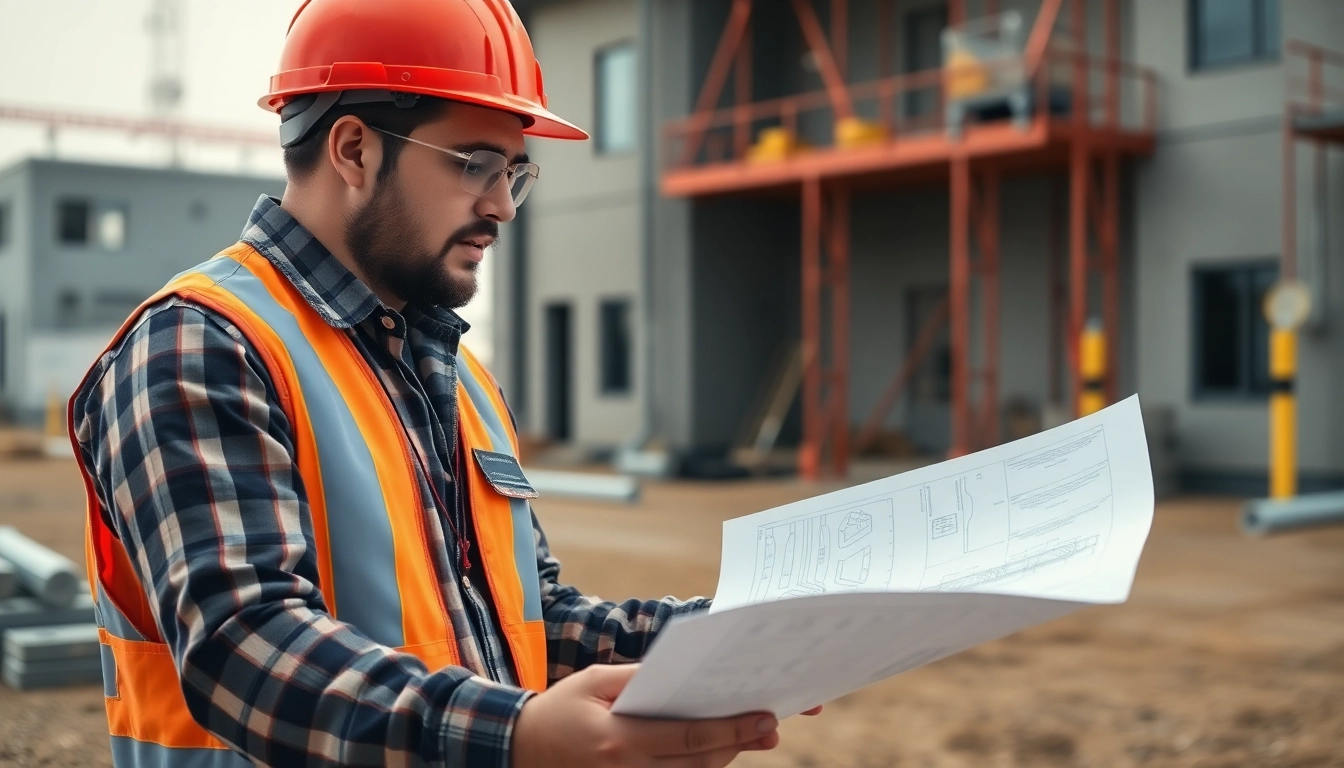Understanding the Role of a Contractor in Construction Projects
In the vast landscape of construction and building industries, the term contractor holds significant weight. Whether you’re embarking on a residential renovation, commercial development, or infrastructure project, understanding what a contractor does is vital to ensuring your project’s success. A contractor is fundamentally a person or company that performs work on a contract basis, overseeing the execution of your architectural vision into reality. This comprehensive guide delves into the multifaceted role of contractors, their various types, qualities to consider, and best practices to ensure a seamless working relationship. We aim to arm homeowners, business owners, and industry professionals with the knowledge needed to select the right contractor and manage projects effectively, thereby minimizing risks and maximizing value.
What Does a Contractor Do? Key Responsibilities and Tasks
Core Duties and Operational Scope
At its core, a contractor functions as the project manager, supervisor, and executor of building tasks. They are responsible for translating architectural plans into tangible structures—coordinating various activities, managing resources, and adhering to timelines. This role involves meticulous planning, procurement, and oversight of labor and materials. Contractors also handle scheduling, sourcing permits, ensuring compliance with safety and legal standards, and maintaining quality control throughout the construction process.
For example, in a residential home build, the contractor orchestrates everything from laying foundations to final finishes, overseeing subcontractors like electricians, plumbers, and carpenters. They ensure each phase completes according to the project specifications, budget, and schedule. Essentially, a contractor acts as the linchpin holding every component of a construction project together.
Project Planning and Management
Effective project planning is central to a contractor’s role. They develop comprehensive project timelines, budget estimates, and resource allocations. By leveraging their industry experience and contacts, contractors optimize workflows and prevent delays. They also anticipate potential challenges—material shortages, weather disruptions, or labor issues—and proactively implement contingency plans.
In addition, contractors coordinate with clients to clarify expectations, facilitate revisions, and document changes, thereby maintaining transparency and accountability. Their leadership ensures that the project remains aligned with the client’s vision and regulatory standards throughout its lifecycle.
Financial Oversight and Cost Management
Handling budgets is a critical responsibility. Contractors provide detailed bids and estimates, breaking down costs for labor, materials, permits, and overheads. They monitor expenses in real-time, identify cost overruns, and negotiate pricing with suppliers and subcontractors. Proper financial management safeguards the project’s profitability and prevents unexpected financial burdens on clients.
Quality Control and Safety Enforcement
Maintaining high standards of quality and safety is non-negotiable for contractors. They enforce adherence to building codes, safety regulations, and design specifications. Regular inspections, testing, and compliance documentation are part of their routine. Implementing safety protocols minimizes accidents, protects workers, and ensures regulatory compliance, while quality assurance guarantees that the finished project meets or exceeds industry standards.
Types of Contractors: General, Subcontractors, and Specialty Experts
General Contractors
General contractors (GCs) are the primary entities responsible for overseeing entire projects. They coordinate all aspects of construction, from acquiring permits to hiring subcontractors and managing day-to-day operations. GCs are typically involved from project inception through completion, serving as the main point of contact for clients.
Their broad scope requires extensive industry experience, license credentials, and a comprehensive understanding of building processes. For instance, a homeowner hiring a general contractor for a home remodel can expect that the GC will manage all subcontractors, procurement, and compliance issues, ensuring a streamlined workflow.
Subcontractors
Subcontractors are specialized professionals hired by general contractors to perform specific tasks within a project. These include electricians, plumbers, HVAC technicians, drywall installers, and more. Subcontractors bring technical expertise in their respective fields and operate under the supervision of the general contractor.
subcontractors are essential for high-quality, specialized work and often have their own licensing, insurance, and safety standards. Effective communication and scheduling with subcontractors are crucial for on-time project delivery.
Specialty Contractors
Specialty contractors focus on niche areas of construction that demand particular skills or technologies. Examples include environmental consultants, structural engineers, or specialists in green building practices. Their involvement is often critical during specific phases or for compliance with specialized regulations.
Choosing the right type of contractor depends on your project’s scope, complexity, and specific technical requirements. A well-structured team of general and specialty contractors ensures quality and efficiency throughout construction.
Qualities to Look for When Hiring a Reliable Contractor
Experience and Track Record
Experience remains paramount when selecting a contractor. An established contractor with a proven track record demonstrates their capacity to manage projects of similar scope and complexity. Review past projects, client testimonials, and case studies to gauge their competency.
Licenses and Certifications
Legitimacy and professionalism are evidenced by proper licensing and industry certifications. Verify their credentials with local and state authorities. Licensed contractors comply with legal standards, have ongoing education, and are insured, reducing liability and ensuring regulatory compliance.
Reputation and References
Request references and actively seek reviews from previous clients. Consistent positive feedback indicates reliability, fairness, and quality workmanship. Engaging with past clients can reveal insights into the contractor’s communication style, timeliness, and problem-solving abilities.
Communication Skills and Professionalism
An effective contractor communicates clearly and proactively. They should provide detailed proposals, timely updates, and be receptive to questions or concerns. Professionalism fosters trust and creates a collaborative atmosphere conducive to project success.
Financial Stability
The financial health of a contractor impacts project continuity. A financially stable contractor can procure materials, pay workers promptly, and withstand unforeseen expenses without jeopardizing the project.
How to Choose the Right Contractor for Your Needs
Assessing Qualifications, Licenses, and Experience
Begin by verifying all credentials, licenses, and insurance coverage. Cross-reference with licensing boards or industry associations. Review their portfolio and client references to confirm their capacity for your project type.
Questions to Ask Before Hiring a Contractor
- Can you provide references from recent projects similar to mine?
- What is your estimated timeline for completion?
- How do you handle changes or unforeseen issues during construction?
- What is your payment structure and schedule?
- Are all permits and inspections included in your scope?
Estimating Costs and Understanding Contracts
Obtain detailed, written bids that itemize labor, materials, permits, and contingency costs. Review contracts thoroughly, ensuring clarity on scope, timelines, payment terms, warranties, and dispute resolution. Do not hesitate to consult legal experts to review complex agreements.
Best Practices for Working Effectively with Your Contractor
Clear Communication and Project Goals
Set explicit expectations from the outset. Develop detailed project plans, timelines, and quality standards. Maintain open channels for ongoing communication via meetings, reports, and digital tools.
Setting Milestones and Monitoring Progress
Break down the project into manageable phases and establish milestones. Regular site visits and progress reports help identify deviations early. Use project management software to track timelines and responsibilities.
Ensuring Quality Control and Safety Standards
Implement routine inspections, QC checklists, and safety protocols. Encourage your contractor to maintain documentation and logs. Prioritize safety training and compliance to prevent accidents and legal issues.
Legal and Licensing Considerations for Contractors
Understanding Contractor Licensing Requirements
Most jurisdictions require contractors to hold valid licenses to operate legally. Licensing ensures adherence to industry standards, and unlicensed work can result in penalties, project delays, or even legal action. Verify credentials before signing any agreements.
Importance of Permits and Regulatory Compliance
Construction projects typically require various permits, ranging from building to environmental. Ensuring your contractor secures all necessary permits prevents legal repercussions and project stoppages. Compliance with local codes guarantees safety and insurability.
Contractor Insurance and Liability Coverage
Insurance protects both parties against accidents, damages, and legal claims. Verify that your contractor carries comprehensive liability, workers’ compensation, and property damage insurance. This coverage reduces your risk and adds a layer of security.
Maximizing Value and Ensuring Project Success
Negotiating Fair Pricing and Payment Terms
Establish transparent, fair payment structures—preferably tied to project milestones. Avoid large upfront payments and ensure clarity on what each payment covers. A detailed agreement minimizes disputes and fosters trust.
Managing Delays and Unexpected Challenges
Delays are common in construction. Proactive communication, contingency planning, and a flexible contract can mitigate their impact. Document all delays and communicate promptly to adjust schedules or budgets accordingly.
Post-Project Wrap-up and Maintenance Support
Upon project completion, conduct walkthroughs to address punch-list items. Discuss warranties, maintenance plans, and future support. Proper documentation and post-project follow-up ensure long-term satisfaction and durability of your build.



